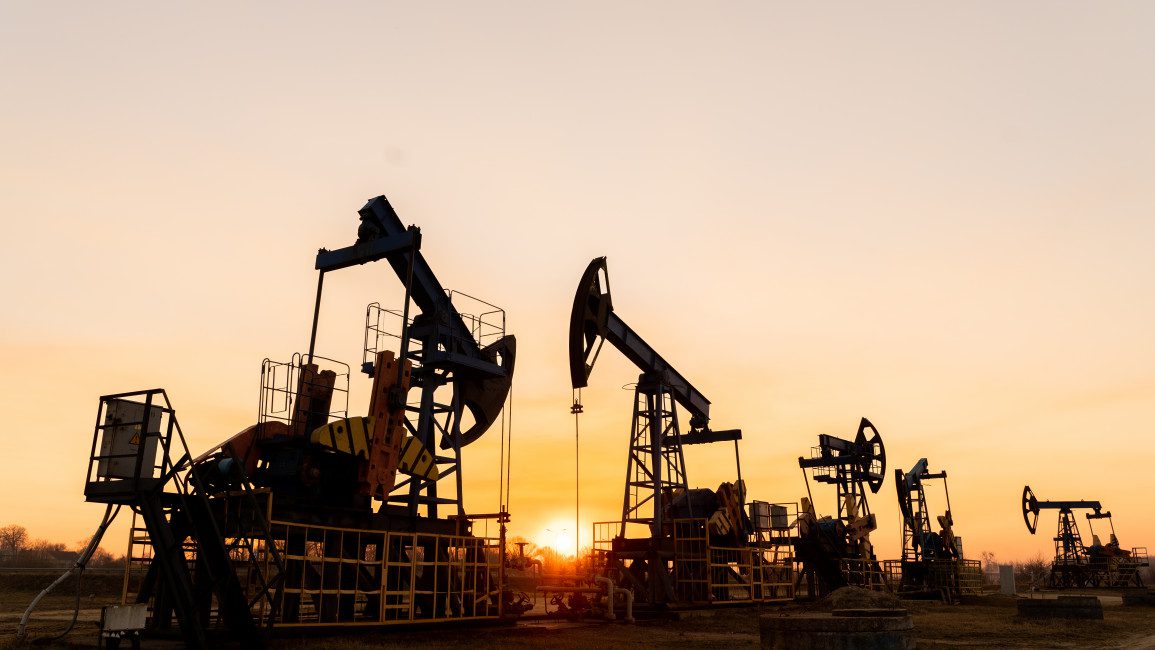Business
A barrel of crude oil costs $84 now

Brent crude oil’s price was $84.21 a barrel at 6:17 AM (GMT+1) on Friday, October 6, according to an early analysis of oil prices.
Even though oil prices rose on Friday, Reuters reported that they appeared to be headed for their biggest weekly decrease since March.
According to Reuters, this increase was accompanied by concerns brought on by a sell-off in the US bond market, which sparked worries about a likely global economic slowdown and the imminent threat of a sharp decline in fuel demand.
According to a Reuters story,
“On Friday, Brent futures were up 26 cents, or 0.3%, at $84.33 at 0358 GMT, and U.S. West Texas Intermediate oil futures were up 28 cents, or 0.3%, at $82.59, recovering just little from a 2% fall on Thursday.
According to OANDA analyst Edward Moya, “oil prices are stabilising after a brutal week that saw a relentless bond market selloff spark concerns about global growth.”
Given that the oil market will stay tight in the near future, buyers are beginning to draw in after the worst week for petroleum since March, according to Moya.”
Be aware that Brent crude hit a record high on September 28 of $97.24 per barrel, last seen in November 2022.
This significant price increase was supported by an appreciable increase in demand as well as a noticeable decline in the world’s supply of crude oil.
It is crucial to emphasise how significant Saudi Arabia and Russia were in fueling this boom.
Both countries had already announced oil production restrictions that would last through 2023, with monthly reviews to determine how the market was performing at the time.
The consortium’s plan for increasing oil production remained unchanged after the OPEC+ ministerial panel meeting on October 4.
This choice was made in response to announcements from Saudi Arabia and Russia reiterating their intention to continue voluntary production cuts as a preventative action to support and stabilise the world oil market.
Saudi Arabia and Russia, two significant OPEC+ coalition members, demonstrated their unshakable commitment to the goal of market stability by choosing to prolong their voluntary supply cutbacks.
Together with the larger OPEC+ production restrictions, these measures have been crucial in resolving supply-demand imbalances and exerting some control over oil prices.
This unwavering dedication to promoting market equilibrium is a reflection of the cooperative mindset of OPEC+ members, who are aware of how crucial it is for both producers and consumers to have a stable and predictable oil market.
Their combined resolve to negotiate the challenges of the world’s energy situation with caution and intelligence is strengthened by their decision to forego changing the production policy.
OPEC’s plan to maintain price control, according to analysts at Rystad Energy, cannot be sustained over the long run, despite claims that global oil demand has peaked.
According to Reuters, Rystad oil analysts predict that the price of crude oil might fall to approximately $60 per barrel by 2027 as demand growth stops.
You may recall that the International Energy Agency (IEA) predicted in September 2023 that the demand for fossil fuels will peak before 2030, indicating that the end of the road for these fuels has just begun.
OPEC, on the other hand, countered that such narratives were not supported by statistics and would simply set the world’s energy system up to fail spectacularly, perhaps resulting in energy instability on a never-before-seen scale, with disastrous ramifications for economies and billions of people around the globe.
The sector here in the country is still feeling the aftershocks of last week’s increases in the price of petroleum around the world. The National President of the Natural Oil and Gas Suppliers Association of Nigeria, Bennett Korie, stated this week at the National Executive Council meeting that Nigerian depots are out of stock of petroleum products as a result of the hike in landing fees to N720 per litre.
The rising price of crude oil and the instability of exchange rates, he claimed, are causing depot owners difficulty.
He claims that because bank loans need excessive interest rates, depot owners are having difficulty maintaining their operations.
The banking industry has grown increasingly hesitant to commit to releasing funds to depot stakeholders as a result of the turbulent economic conditions characterised by uncertainty and skyrocketing foreign exchange prices.
Since their storage tanks are now empty, many depots now resemble ghost towns, and this is not just speculation—it is a truth that is easily verifiable.
The owners of fueling stations, one of the worst-hit businesses, must fight hard to raise the money necessary to buy goods for their retail stores.
The whole petroleum distribution sector is under financial strain, with both independent and large marketers being affected.
